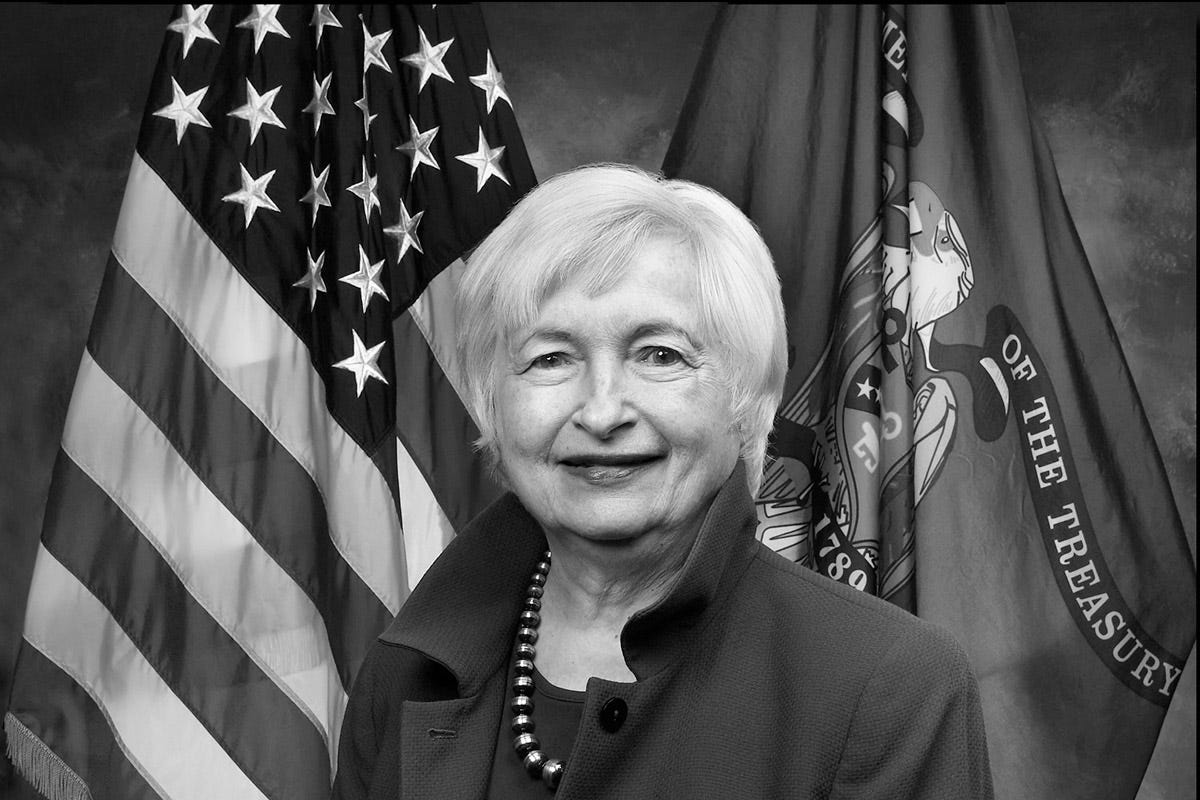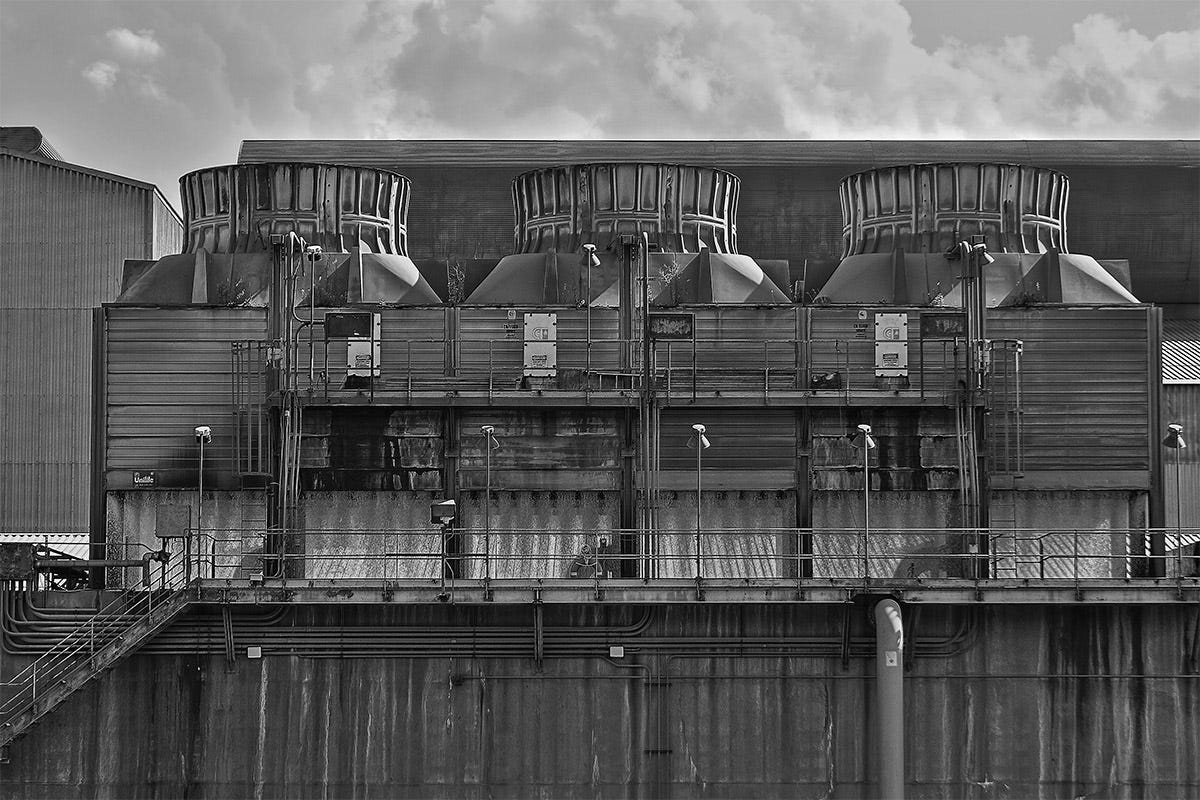Memo to Janet Yellen: Please Do the Right Thing for Pittsburgh – and for the U.S.
Killing a $15 billion investment from Japan will not help the Rust Belt
Albert Einstein called nationalism “the measles of mankind – an infantile disease.”
This is never truer than in Pennsylvania during election season, where protection of coal, iron and steel has been a campaign card since 1860 (when Abraham Lincoln campaigned for a tariff).
This year, three White House candidates (first Donald Trump, then President Biden, and now Kamala Harris), have vowed to block the proposed acquisition of the once-iconic steelmaker, U.S. Steel, by Japan-based Nippon Steel.
It sounds like standard protectionism but actually is far worse. Blocking the deal would not only cost America competitiveness in global markets, it would also cost American jobs at home.
Trump’s campaign pledge to further raise tariffs, and sharply, has drawn deserved criticism, but as bad as tariffs are, they at least involve a tradeoff. Tariffs penalize foreign imports and maybe protect a few jobs—but at greater cost in higher prices (inflation) and to American exports and to growth in general.
In the case of the Nippon proposal there is no tradeoff. (Readers will recall that the pending acquisition was discussed in my July post; I’m elaborating because a resolution seems close and, frankly, I’ve scarcely ever seen a potential economic policy so wrong-headed.) The result of killing the deal would be all bad—bad for jobs, bad for America’s on-the-ropes steel industry, bad for relations with our foremost Pacific ally, and bad for the integrity of American markets.
First consider that, unlike imports (which send dollars overseas) foreign investment strengthens America’s finances by bringing currency home. The Nippon acquisition in particular seems like a win-win. Though U.S. Steel, created by the banker J.P. Morgan, Sr. in 1901, once symbolized America’s industrial prowess, it has been shedding jobs for years. Like other domestic steelmakers, it is too inefficient to compete with cheap Chinese imports (even after tariffs are imposed on the latter).
Today, U.S. Steel has far more retirees in the Keystone State than active employees (overall, its labor force has shrunk to 22,000 from 340,000 after World War II). Last year, Cleveland-Cliffs, a domestic rival, proposed to acquire U.S. Steel for only $7 billion, a sign of Steel’s distress. Its board rejected the offer, noting that the two companies each supply the auto industry and would monopolize domestic iron ore supplies, thus a merger would surely face an antitrust challenge.
But last December, U.S. Steel negotiated a cash acquisition with Nippon for twice as much—$14.9 billion. As part of the deal, Nippon pledged to honor U.S. Steel’s union contracts, reinvest in its aging facilities, and keep the headquarters in Steeltown. The United Steelworkers Union opposed the match from the start—and no politician on the national scene has dared to go against them.
To allay opposition, Nippon has doubled its original commitment to revitalize U.S. Steel, now pledging to reinvest $2.7 billion in mills in the environs of Pittsburgh and Gary, Ind. and not to move production offshore. It also promised that U.S. Steel, as a separate subsidiary, would be run by a board comprised mostly of U.S. citizens, and a majority of American executives.
Remarkably, to assuage fears in Congress, Nippon has withdrawn from a joint venture with a Chinese steelmaker. Although the union questions whether Nippon truly intends to keep making steel in the U.S., strategically, the merger makes sense. Nippon is the 4th largest steel company, globally, but with Japan’s population declining, it needs new markets. U.S. Steel ranks only 24th among world steelmakers, but with Nippon’s technology and capital could be a formidable competitor against China in the world auto market. This is exactly the goal—bringing investment home—that animated President Biden’s signature Inflation Reduction Act.
On the other hand, U.S. Steel doesn’t have the capital to reinvest on a similar scale on its own. It has said that absent a deal it will close mills and possibly abandon Pittsburgh.
The politicians opposing the deal–including Ohio’s J.D. Vance, the Republican vice presidential nominee, and Pennsylvania’s two Senators, and one Ohio Senator, and others—aren’t really protectionists. They are false protectionists. They want to mollify a powerful union by doing something that appears to protect jobs but in substance would not.
The mechanics of torpedoing the deal are complicated. An interagency panel called the Committee on Foreign Investment in the U.S. (CFIUS), chaired by the Secretary of Treasury, could recommend that the President block the deal if it were considered to be a national security risk. CFIUS has been studying the deal for months, without announcing a conclusion, but reportedly, it has said the deal poses national security issues.
Almost no one outside the political sphere agrees. For one thing—more than 20 steel plants in the U.S. are already foreign owned, one with an owner from Russia – not exactly America’s foremost ally—and nobody has questioned them.
Matthew Slaughter, a former CFIUS member and now dean of the Tuck School of Business at Dartmouth, told CNBC, “Japan is one our most stalwart allies. It’s hard to see other than domestic political considerations driving this.” Slaughter called the prospect of scuttling a deal that could help the U.S. regain its edge in the global economy “heartbreaking.” Various former officials in the George W. Bush and Barack Obama administrations agree. Even Wilbur Ross—Secretary of Commerce under Trump—says the deal should go ahead.
Even among politicians, the closer you get to steel country, the more favor Nippon finds. Sam DeMarco, an Allegheny Councilman, told me, “The folks that I’ve talked to in the surrounding communities are in favor of this deal. They see this as a lifeline. The steelworkers we have today are doing the best they can,” he added, “but they’re working with technology nearly a century old. The hot strip mill Nippon is planning to replace—for $1 billion--that was put in in 1938.
“We can trust Japan with Patriot missiles but we can’t trust them to make steel here in Mon Valley?” [the steel region], DeMarco wondered.
Chris Kelly, mayor of West Mifflin, host to U.S. Steel’s Irvin plant, says he has met with Nippon officials “over and over” and was impressed. “If the merger doesn’t go through there is no company,” he said with perhaps a dose of hyperbole. “The headquarters are gone. The jobs are gone. This is something that needs to happen.”
Normally, you might expect nativist prejudice to flourish more at the local level, but people in Pittsburgh seem less susceptible to nationalistic “measles” than Washington politicians. A rally in support of the acquisition drew 400 people, including many union members. They carried placards reading “We Want Nippon Steel’s Investments.” Mayor Kelly said he believes local union reps are in favor. The Pittsburgh Post-Gazette editorialized for the deal, admonishing, “There is no long-term future for steelmaking in Pittsburgh—dirty, clean or otherwise—under American ownership.” Roll over Andrew Carnegie. It makes one wonder what the Presidential candidates are so afraid of.
The USW has repeatedly said that Nippon’s assurances cannot be trusted. “A press release is not a contract,” the national union noted. However, Nippon has offered to negotiate a separate agreement with the USW and been rebuffed. According to emails leaked to the Washington Post, the union boss, David McCall, refused to meet with Takahiro Mori, vice-president of the steelmaker, because the merger, in the union’s view, had “fatal problems.”
While rejecting Nippon’s friendly offer, the USW all but shepherded Cleveland-Cliff’s hostile bid, and continues to support it—even though shareholders, including many Steel retirees, would get half as much per share, and Cleveland-Cliffs is not as strong, financially, as Nippon. Cleveland-Cliffs closed a plant in West Virginia in April and laid off 900 workers.
Moreover, a Steel and Cleveland-Cliffs combination would control 100% of U.S. blast furnace production, and virtually all of the domestic steel for electric vehicle motors. It’s hard to escape the conclusion that the union is longing for the era when Big Steel and Big Labor were partners in a cartel with a big tariff wall to protect monopolistic prices.
That era came undone when foreign steelmakers proved more efficient. Since the late 1900s, about forty American steelmakers have filed for bankruptcy. At a Labor Day rally in Pittsburgh, Harris said “U.S. Steel should remain American operated and owned.” Trump, Biden and Vance have all said similar.
The timing of a decision from CFIUS is uncertain, but speculation is rife that President Biden will torch the deal before the November election, as an intended gift to Harris. Janet Yellen, Secretary of the Treasury, who leads the committee, would do Harris and the country—and her own legacy—better service by refusing to go along with this poorly conceived political charade. The future of steel country is at stake, and Nippon’s is the best offer on the table by far. The flag of the corporate headquarters is irrelevant. Nippon is not spending $15 billon to transport factories (much less iron deposits) overseas, and if it ever tried, the government would intervene. What matters is that in a long-depressed industrial region somebody with knowhow is offering real money for a significant modernization. The plight of depressed manufacturing areas is maybe the number one economic problem in America. No one has solved it. Here is a genuine proposal by a staunch U.S. ally acting in concert with what America preaches about open markets. And the candidates from the two major parties—who can hardly ever agree on anything—are finally speaking in one voice--competing to see who can kill it first.



Nice article Roger. Hope it persuades
I come to many of the same conclusions in an essay published a few months ago — not only is the bipartisan pushback against the deal a poor attempt at showing solidarity with a handful of voters critical to election success in swing states, but it also greatly hinders more important goals like competing with China and strengthening relations with Japan. I also predicted in a note a few weeks back that the Harris-Walz campaign would ultimately take a negative stance on the deal.
https://open.substack.com/pub/thestupideconomy/p/a-protectionist-mountain-out-of-a?r=i7v1h&utm_medium=ios